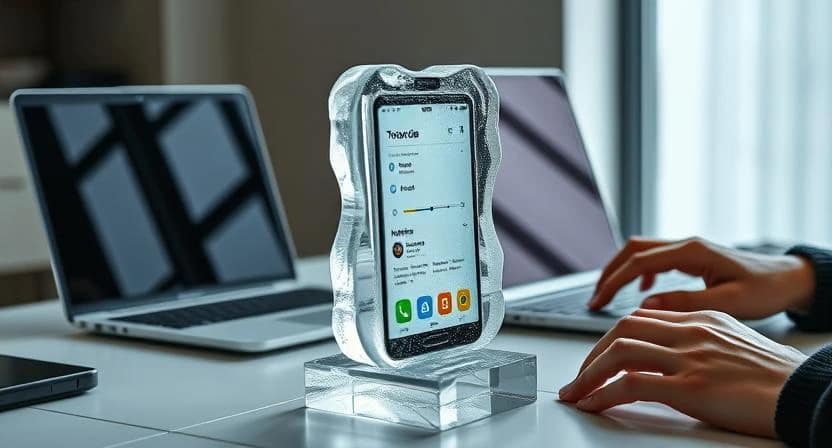In July 2025, Facebook’s parent company, Meta, agreed to pay $8 billion to settle a massive privacy lawsuit. This lawsuit claimed that Facebook wasn’t being honest about how it handled people’s personal information. For many Nigerians, this may sound like just another tech story from overseas, but it’s more than that, it’s a big moment that shows how even the biggest tech companies can be held responsible for how they treat our data.
The case came from complaints by investors and privacy advocates. They argued that Facebook collected and shared people’s data without clear permission and didn’t tell users or investors the full truth. To avoid dragging it out in court, Meta decided to settle by paying the huge sum. While this might seem like a normal corporate decision, it actually reflects the growing pressure on tech companies worldwide to respect users’ privacy.
This isn’t Facebook’s first time facing such issues. From the Cambridge Analytica scandal in 2018 to several data leaks in the years after, the company has had a long history of problems with how it uses people’s data. But this new case feels different, it’s bigger, louder, and part of a bigger shift in how seriously the world is starting to treat data privacy.
Read Also: Bill Gates Gave Away $60 Billion—Now He’s Worth Less Than Musk but Has Helped Millions
Why Should Nigerians Care About This?
You might be asking, “How does this affect me here in Nigeria?” Well, even though this happened in the United States, the truth is, Nigerian users are also part of Facebook’s massive system. Every time you scroll, like a post, or click on an ad, Facebook is collecting that information. If that information is mishandled or misused, you’re affected just like anyone else in the world.
Nigeria is still working on its data protection laws. We don’t yet have the strong privacy rules that exist in Europe. That means users here might be more exposed when companies aren’t careful. But this case might serve as a push for Nigeria’s regulators, like the Nigeria Data Protection Commission (NDPC), to do more to protect our online rights.
And for Nigerian startups and tech businesses, this is a big lesson. People care about their data now more than ever. If you’re running an app or website, how you handle user information matters. Respecting user privacy isn’t just about avoiding trouble, it’s about building trust.
What This Case Tells Us About Big Tech in 2025
This lawsuit isn’t just about Facebook. It’s part of a bigger story about how the world is changing the way it treats big tech companies. Years ago, these companies could collect data freely without many questions. But now, they’re being watched more closely.
Governments are starting to step in, asking tough questions about how these companies work. Investors are also starting to care more about ethics and less about just profits. People want transparency. They want to know that their private information is safe.
And Facebook isn’t the only one under fire. Other companies like TikTok, Google, and even AI startups, are now being looked at closely. More lawsuits are coming, and this is likely just the beginning of a bigger push to keep tech companies in check.
For anyone building an app, website, or online service in Nigeria, this is a great time to pause and reflect. Think about how you’re collecting user data. Are you asking for permission clearly? Are your terms easy to understand?
Don’t wait until you’re forced to fix things. Make your privacy policies simple and honest. Don’t collect information you don’t need. Doing the right thing now will help you earn users’ trust and keep you out of trouble later.
Also, remember that your users might come from all over the world. Even if your business is based here in Nigeria, your app might be downloaded in Europe or the US, where rules are stricter. If you don’t follow proper privacy standards, your app could get blocked or removed from app stores.
The Facebook lawsuit is just one example of a wider movement. Around the world, people are starting to expect more from tech companies. For too long, these companies grew quickly without thinking about the risks. Now, that’s changing.
People are realizing that their personal data is valuable, and they want to protect it. Governments are creating stronger privacy laws. And with the rise of artificial intelligence, how data is collected and used has become an even bigger concern.
The message is clear: companies that don’t take user privacy seriously will face the consequences. This shift is happening everywhere, and Nigerian tech businesses need to be ready for it.
So, What Can You Do as a Nigerian Internet User?
You don’t have to be a tech expert to protect yourself online. Start by being more aware of the apps and websites you use. Before granting access to your contacts, photos, or location, ask yourself if it’s really necessary.
Use strong passwords and turn on two-factor authentication to keep your accounts safe. Be careful with the kind of personal details you post online, and don’t trust apps that are unclear about how your data is being used.
Also, when you see Nigerian-made platforms that care about privacy, support them. And if you ever feel like your data has been misused, speak up. You can report it to the NDPC or reach out to the platform directly.
This Facebook lawsuit may have happened far from home, but its message is loud and clear everywhere—including Nigeria. It shows that even the biggest tech companies can be held responsible for their actions. It also shows that privacy is no longer a side issue, it’s a serious matter that affects all of us.
For users, it’s a reminder to stay alert and informed. For tech creators, it’s a call to build better, more respectful products. And for everyone, it’s a step forward toward a more honest and trustworthy internet.







